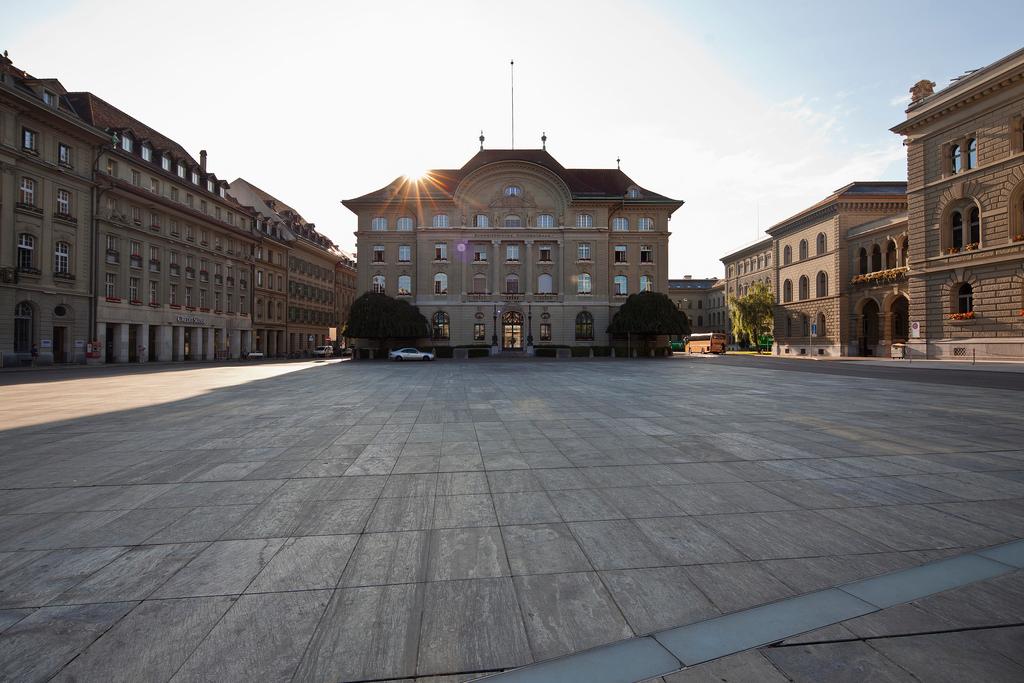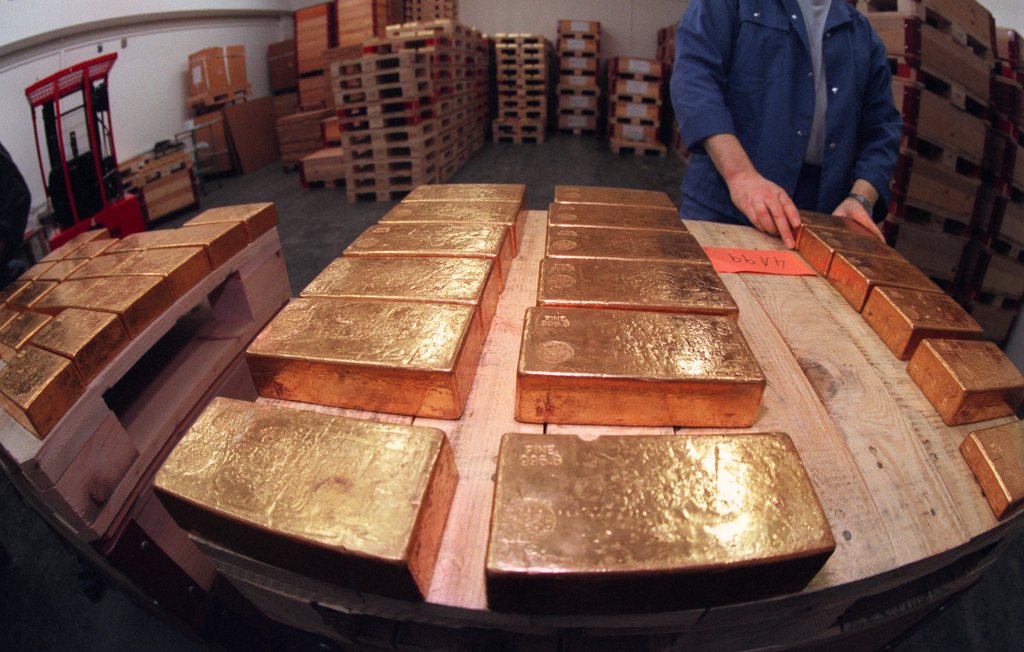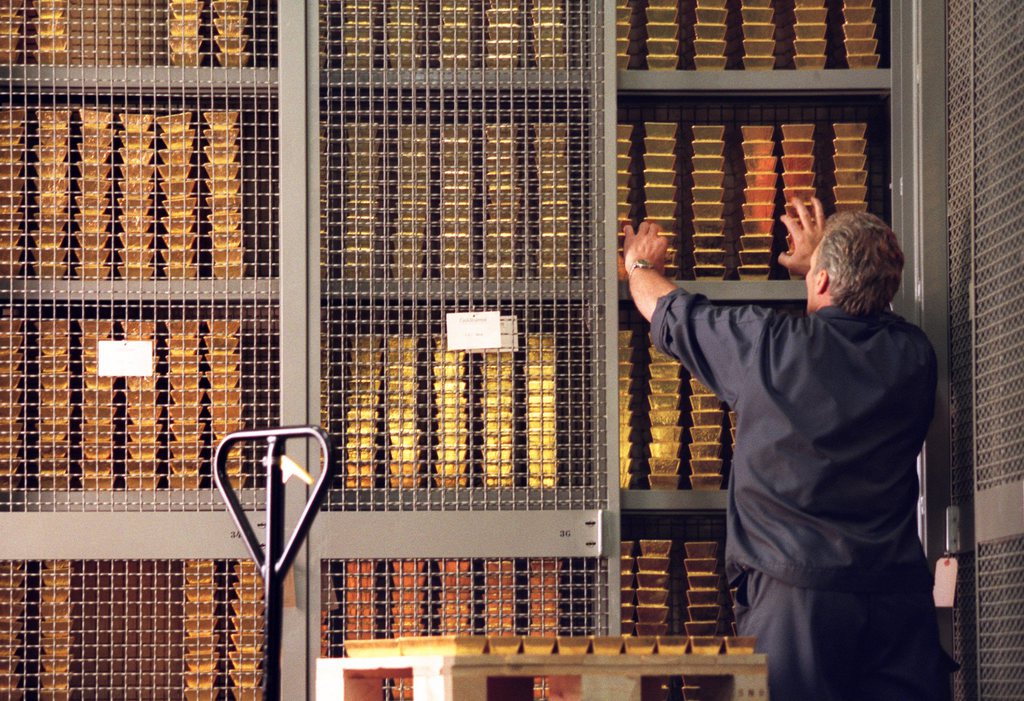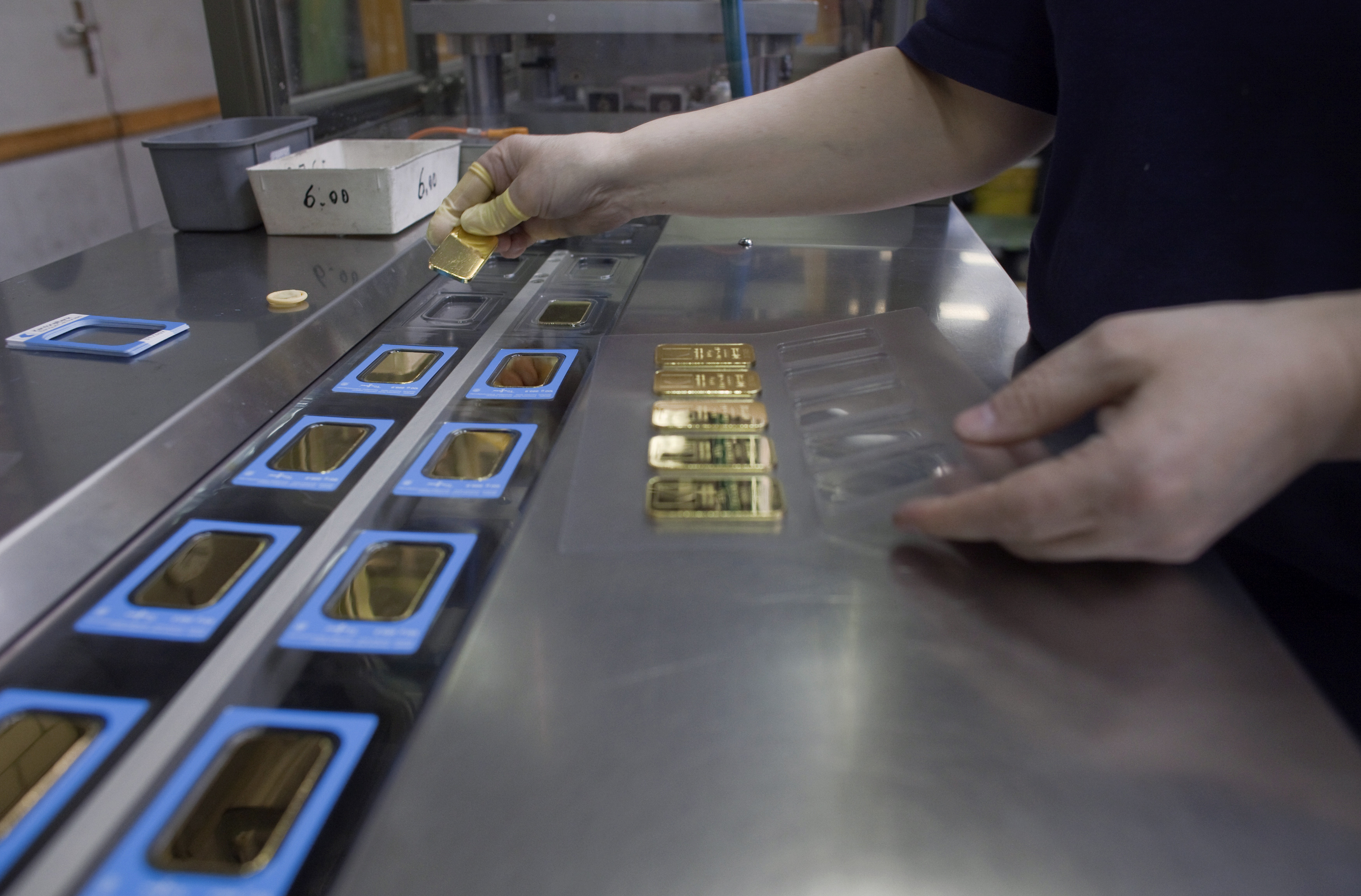Tighter grip needed on Switzerland’s gold?

Conservative politicians want to compel Switzerland’s central bank to hold at least 20% of its assets in gold it could never sell. For those opposed, the initiative would hobble the bank’s operations and harm the economy.
“Save Switzerland’s gold”: it sounds like the plot of a thriller, but it is actually a proposal going before voters in a nationwide ballot on November 30.
So, who do the Swiss need to save their gold from? Not from organised crime or terrorism, according to proponents of the initiative, but from the leadership of the Swiss National Bank (SNB), which between 2000 and 2008 sold off half of the national gold reserves.
These sales were prompted by the decline of gold in the 1990s. The precious metal hadn’t shown any sign of recovery, even in the course of international crises, and seemed to have lost its function as a safe haven.
A number of countries decided to sell off part of their gold reserves to invest the resources of the central banks more profitably, or to relieve strain on the public finances. This also happened in Switzerland, where the SNB held 2,590 tonnes of gold, the fifth largest reserves in the world.
Between 2000 and 2005, the central bank sold an initial consignment of 1,300 tonnes of gold, with two thirds of the proceeds going to the cantons and one third to the federal government. From 2007 to 2008 it put another 250 tonnes on the market, using the proceeds to bolster its own currency reserves.
National inheritance
This was a serious mistake, according to Swiss People’s Party parliamentarian Luzi Stamm, who proposed the initiative with two of his party colleagues.
“Gold has shown again, in the recent economic and financial crisis, that it is more resistant than international currencies like the euro and the dollar. History shows that currencies can lose their value or even disappear in a short space of time. But gold represents a physical reality, which will keep its value even in two or three centuries.”
Furthermore, he says, the SNB sold 1,300 tonnes of gold at the worst moment, when prices were three times lower than those reached in more recent years. “This shows that the leadership of the SNB can make big mistakes.”
“Gold reserves are our national inheritance, accumulated over decades by generations of Swiss. They cannot just be liquidated in this manner, without the people deciding.”
Reserves of gold
In 1999 parliament abolished the linking of the franc to gold, thus freeing the central bank of the need to guarantee gold coverage for all banknotes in circulation. Following this decision, the SNB sold 1,300 tonnes of gold at an average price of CHF15,604 a kilo and 250 tonnes at CHF27,000 a kilo between 2000 and 2008. In 2012, the price of a kilo of gold jumped to CHF53,700. From 2013 on the quoted price for gold fell again to CHF33,900. Currently, the price per kilo varies between CHF36,000 and CHF38,000. Since 2008 the SNB has held 1,040 tonnes of gold, which constitute the seventh largest gold reserves after those of the US, Germany, Italy, France, China and Russia. New sales are not contemplated at present.
If their initiative, submitted in 2013, is successful, the People’s Party members want to impose three new rules on the SNB.
In future the central bank will not be able to sell so much as an ingot of the nation’s gold reserves. In fact, it is to buy large quantities of gold. The initiative demands that gold reserves correspond to at least 20% of the assets of the SNB (the figure is currently 6-7%). All the precious metal is also to be kept in Switzerland. For a long time, 20% of it has been held in Britain and 10% in Canada.
Sufficient reserves
The initiative has not met the favour of the government,External link which is advising the people to reject it.
Finance Minister Eveline Widmer-Schlumpf says the SNB has more than sufficient reserves with 1,040 tonnes of gold. The initiative’s backers overestimate the importance of gold, she adds. It is a volatile and risky metal, which has lost about 30% of its value in 2013 and yields no interest.
In the government’s view, the initiative would limit the independence and operating capacity of the SNB, which according to its mandate is supposed to carry on a monetary and currency policy in the general interest of the country. To that end, the central bank uses several instruments designed to guarantee the stability of prices, favour economic prosperity and preserve confidence in the Swiss franc.
For quite some time gold has no longer had a primary role in monetary stability. If it was forced to hold an inalienable quantity of gold equal to 20% of total assets, the SNB would lose any margin of manoeuvre it has to intervene in the marketplace, the government says. Neither could the bank take the steps it took in 2011 to stop the franc becoming too high-priced compared with the euro and to maintain the competitive edge of Swiss exports.
The government also defends the SNB’s decision to locate 30% of its holdings abroad. This geographic diversification allows the central bank to have part of its resources available in other places and to sell it on other markets in times of crisis.
Pressure from outside
In recent years, several People’s Party representatives had criticised the monetary policy of the SNB, in particular the massive purchases of euros made to prop up the value of the European currency and keep the exchange rate floor at CHF1.20 ($1.26). In 2012 these interventions resulted in losses in the billions from the balance sheet of the central bank.
“Our initiative will not encroach on the independence of the SNB,” insists Stamm.
“That independence is more threatened in fact by pressure coming from abroad. During the crisis of the last few years, the SNB was forced to print billions of francs to buy euros and dollars, which have no real value. If they used this money to buy gold, they would have a real value, which would reinforce their position dealing with the outside.”
n his view it is also dangerous to leave a part of the gold reserves of the SNB in foreign hands. “It is absurd to say that the gold is safer abroad. No one can seriously believe that, in the event of a major crisis, Switzerland will easily be able to get its gold back from abroad. Today we see how our ‘friends’, neighbouring European countries and the US, are trying to weaken the Swiss financial marketplace.”
Paradox
The initiative has been rejected by a large majority in parliament. Many parliamentarians have particularly criticised the proposed obligation to hold inalienable gold reserves of 20% – this way, they say, the SNB would have to operate with only 80% of its assets.
“The initiative is a paradoxical one in several ways,” says Christian Democratic parliamentarian Dominique de Buman. “Its proponents regard gold as a safe haven,which guarantees security in the event of crisis. But at the same time they want to forbid the sale of gold reserves altogether. This means that gold could not be used even in a crisis and would be useless.”
De Buman argues the SNB would in practice be forced to accumulate enormous gold reserves that would be untouchable. “This would only diminish its overall profitability and thus the dividends paid regularly by the bank to the government and the cantons.”
Initiative on gold
Started by three Swiss People’s Party politicians – parliamentarians Luzi Stamm and Lukas Reimann, and former parliamentarian Ulrich Schlüer – the initiative to “save Switzerland’s gold” was handed in to the Federal Chancellery in 2013. If the proposal is accepted, the gold reserves of the SNB will no longer be able to be sold. Within five years, the SNB is to hold an amount of gold equal to at least 20% of its assets. This gold is to be kept entirely in Switzerland. Currently the entire reserves of the SNB come to about CHF500 billion. To meet the terms of the initiative, the central bank would therefore have to hold gold in the amount of at least CHF100 billion. Given its current gold reserves, it would have to buy CHF65 billion worth of ingots.
(Translated from Italian by Terence MacNamee)

In compliance with the JTI standards
More: SWI swissinfo.ch certified by the Journalism Trust Initiative















You can find an overview of ongoing debates with our journalists here . Please join us!
If you want to start a conversation about a topic raised in this article or want to report factual errors, email us at english@swissinfo.ch.